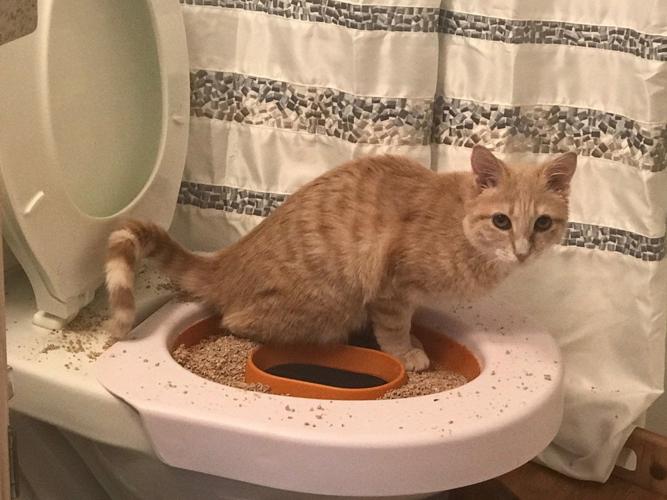Avoid Plumbing Problems: Never Flush Cat Poop Down Your Toilet - Expert Guidance
Avoid Plumbing Problems: Never Flush Cat Poop Down Your Toilet - Expert Guidance
Blog Article
The article down below involving Can You Flush Cat Poop Down The Toilet? is really interesting. Don't bypass it.

Introduction
As cat proprietors, it's vital to bear in mind exactly how we throw away our feline good friends' waste. While it might appear practical to flush cat poop down the commode, this technique can have damaging repercussions for both the setting and human health and wellness.
Alternatives to Flushing
The good news is, there are safer and more liable ways to throw away feline poop. Think about the complying with choices:
1. Scoop and Dispose in Trash
One of the most usual technique of disposing of cat poop is to scoop it right into an eco-friendly bag and throw it in the trash. Make certain to use a committed litter inside story and dispose of the waste immediately.
2. Usage Biodegradable Litter
Select eco-friendly feline trash made from materials such as corn or wheat. These clutters are environmentally friendly and can be safely gotten rid of in the trash.
3. Bury in the Yard
If you have a yard, take into consideration burying cat waste in a marked area far from vegetable yards and water resources. Make sure to dig deep sufficient to prevent contamination of groundwater.
4. Mount a Pet Waste Disposal System
Invest in an animal waste disposal system particularly developed for feline waste. These systems use enzymes to break down the waste, reducing odor and ecological impact.
Health and wellness Risks
Along with ecological concerns, purging cat waste can additionally present health dangers to human beings. Pet cat feces may consist of Toxoplasma gondii, a parasite that can trigger toxoplasmosis-- a potentially severe ailment, particularly for expectant women and individuals with weakened body immune systems.
Environmental Impact
Flushing cat poop presents damaging pathogens and parasites right into the water system, posturing a considerable danger to aquatic ecological communities. These pollutants can adversely affect aquatic life and concession water quality.
Conclusion
Liable animal possession prolongs beyond supplying food and sanctuary-- it additionally entails correct waste management. By avoiding purging feline poop down the toilet and selecting alternate disposal techniques, we can minimize our ecological impact and safeguard human wellness.
Why Can’t I Flush Cat Poop?
It Spreads a Parasite
Cats are frequently infected with a parasite called toxoplasma gondii. The parasite causes an infection called toxoplasmosis. It is usually harmless to cats. The parasite only uses cat poop as a host for its eggs. Otherwise, the cat’s immune system usually keeps the infection at low enough levels to maintain its own health. But it does not stop the develop of eggs. These eggs are tiny and surprisingly tough. They may survive for a year before they begin to grow. But that’s the problem.
Our wastewater system is not designed to deal with toxoplasmosis eggs. Instead, most eggs will flush from your toilet into sewers and wastewater management plants. After the sewage is treated for many other harmful things in it, it is typically released into local rivers, lakes, or oceans. Here, the toxoplasmosis eggs can find new hosts, including starfish, crabs, otters, and many other wildlife. For many, this is a significant risk to their health. Toxoplasmosis can also end up infecting water sources that are important for agriculture, which means our deer, pigs, and sheep can get infected too.
Is There Risk to Humans?
There can be a risk to human life from flushing cat poop down the toilet. If you do so, the parasites from your cat’s poop can end up in shellfish, game animals, or livestock. If this meat is then served raw or undercooked, the people who eat it can get sick.
In fact, according to the CDC, 40 million people in the United States are infected with toxoplasma gondii. They get it from exposure to infected seafood, or from some kind of cat poop contamination, like drinking from a stream that is contaminated or touching anything that has come into contact with cat poop. That includes just cleaning a cat litter box.
Most people who get infected with these parasites will not develop any symptoms. However, for pregnant women or for those with compromised immune systems, the parasite can cause severe health problems.
How to Handle Cat Poop
The best way to handle cat poop is actually to clean the box more often. The eggs that the parasite sheds will not become active until one to five days after the cat poops. That means that if you clean daily, you’re much less likely to come into direct contact with infectious eggs.
That said, always dispose of cat poop in the garbage and not down the toilet. Wash your hands before and after you clean the litter box, and bring the bag of poop right outside to your garbage bins.
https://trenchlesssolutionsusa.com/why-cant-i-flush-cat-poop/

We had been brought to that editorial on How to Dispose of Cat Poop and Litter Without Plastic Bags from a friend on our other web address. Those who enjoyed reading our blog posting if you please make sure you remember to share it. Bless you for your time. Visit us again soon.
Schedule And Pricing Report this page